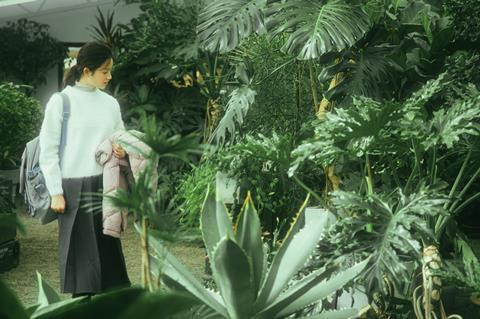Three generations of Chinese women talk about their lives in Er Zhuo Wang’s fiction-documentary hybrid

Dir/scr: Er Zhuo Wang. China. 2021. 83 mins.
Three chapters; three generations; three Chinese women talk about moments from their lives in this handsome hybrid of documentary and fiction. The first is an elderly women who recalls a life of unrelenting graft and the death of a child; the second is a young woman in her 20s who talks about the isolation and loneliness of moving to Beijing to study dance when she was still a child; the third is a middle-aged teacher who muses on her marriage and career. There is little in the way of an obvious thematic overlap between them but there is a harmony of approach in the three segments, and moments of quiet power in the women’s words.
The cinematography is strong throughout, particularly when it hones in on telling details
This is the first dramatic feature from Er Zhuo Wang, whose previous films includes South Of The Clouds (2012), a feature-length documentary about the aunt who raised him and the beauty parlour she runs in a small town close to the Burmese border. Although scripted, Farewell, My Hometown retains a clear kinship with the observational-documentary techniques of his earlier work, and the two older characters play fictional versions of themselves (the youngest woman is played by an actress). While the picture is a little too tentative to assert itself in the theatrical market, further festival screenings are possible, particularly in events which straddle the territory between cinema and video art.
The first of the film’s chapters is also its most powerful. An elderly woman recalls a relentlessly tough life in rural Hunan. Daily toil, from the age of six, shaped her existence, her destiny predetermined by the extreme poverty of her family. An early marriage to a husband with health problems meant that she found herself in the dual role of carer and of provider for her family. It was a hardscrabble subsistence slog that she accepted as her lot: “Women are like rapeseeds. They live wherever you scatter them.” Then her oldest child became sick. After a three-day journey by train from Hunan to Xi’an, they learned that his diagnosis was terminal.
The considerable force of her words, which are delivered in a voiceover, is augmented by the arresting photography. Shots of the verdant Hunan landscape, all curling tendrils of mist and jutting mountains; snaking roads captured through the windscreen of a car; a lovely shot of the woman and her family picking huge banana leaves and laughing when her daughter trips and topples over: it’s a striking juxtaposition of beauty with a harder truth.
This same combination of voiceover with long takes, frequently wide shots, to provide a backdrop to the words is also employed in the second and third chapters. The second, which takes as its subject a younger woman, emphasises the abrupt edges and emptiness of the cityscape. The loneliness that she describes in her recollections of moving to Beijing has not left her. And in the third chapter, the camera spends a great deal of time gazing wistfully out of windows as other lives unfold.
While the cinematography is strong throughout, particularly when it hones in on telling details — the neglected maidenhair fern in the second segment, the stoic shovelling of food that passes for companionship in the first — the film’s sound mix is less adept. Abrupt drop-out of the audio between scenes is distracting and at odds with the picture’s visual lyricism.
Production company: Xin Zhou Films
International sales: Xin Zhou Films, Linky@Sky-Public.Com
Producer: Jing Zhang
Cinematography: Lin Han Li
Production design: Zhi Qiang Lan
Main cast: Yu He He, Wang Xi Yao, Feng Jie Zeng















![[L-R]: Amanda Villavieja, Laia Casanovas, Yasmina Praderas](https://d1nslcd7m2225b.cloudfront.net/Pictures/274x183/6/4/1/1471641_pxl_20251224_103354743_618426_crop.jpg)








